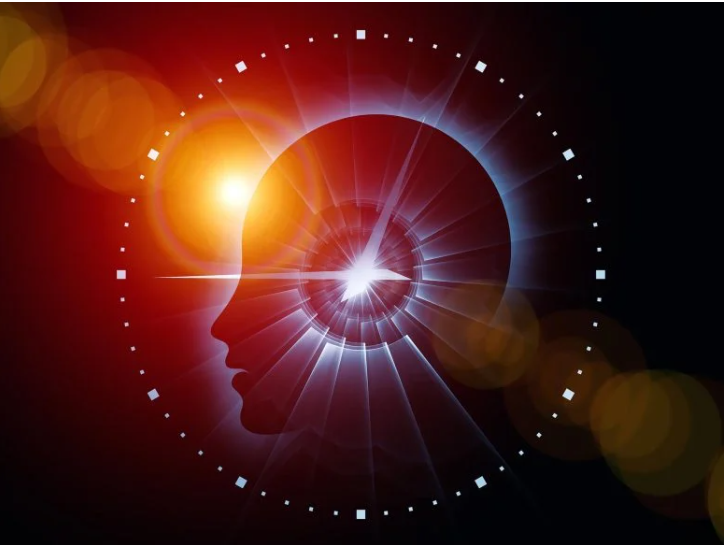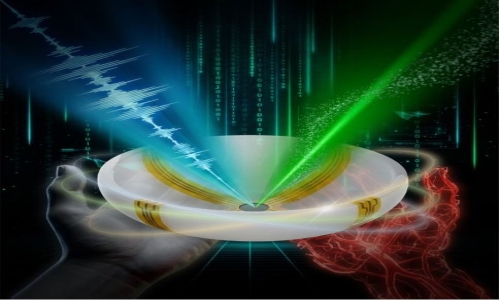


 11:6:25
11:6:25  2025-02-19
2025-02-19  974
974

Researchers report that the type of tissue samples used is crucial when assessing a person’s biological age, which reflects how well their body is functioning.
People’s bodies can appear older or younger than their chronological age, depending in part on the types and amounts of stressors they have experienced. Scientists can estimate a person’s biological age, but the method they use—whether analyzing oral tissue or blood—can influence the results, according to a new study led by researchers in the Penn State Department of Biobehavioral Health.
Biological age, a measure of how well the body is functioning, differs from chronological age, which is simply the number of years since birth. While chronological age is linked to disease risk, researchers and medical professionals can use biological age—which can be influenced by environmental and behavioral factors—to better assess a person’s risk for certain diseases, including cancer and dementia.
The Importance of Tissue Type in Measuring Biological Age
The correct type of tissue is needed to estimate biological age accurately, according to the study led by Abner Apsley, doctoral candidate in the Penn State Molecular, Cellular, and Integrative Biosciences Graduate Program, and his adviser, Idan Shalev, associate professor of biobehavioral health at Penn State. Their results were published in Aging Cell.
In recent years, researchers created several epigenetic clocks — tools that compare a person’s biological age to their chronological age. As these clocks have become widely available, multiple companies have begun to offer services that estimate people’s biological age by comparing customer tissue samples to established epigenetic clocks.
Researchers construct epigenetic clocks by collecting tissue samples from a large number of people and examining differences in epigenetic markers — which indicate points of DNA methylation — across the lifespan. Using machine learning to identify which epigenetic markers predict chronological age, the researchers can then determine if a person’s epigenome, or the set of markers, matches their chronological age.
In theory, knowing a person’s biological age could indicate what behaviors that person needs to modify in order to extend their life. In clinical settings, however, scientifically validated uses of epigenetic clocks are not common yet, the researchers said.
“Aging is the main driver for a host of common diseases including dementia, heart disease and cancer,” Shalev said. “Measurement of biological age is not a diagnosis of a health problem, but it can be used to identify a person’s risk for age-related conditions.”
Commercial Epigenetic Age Testing and Potential Issues
Some commercial companies offer to measure biological age by requiring customers to spit into a test tube and mail the sample to the company. The company analyzes epigenetic information in the saliva and uses established epigenetic clocks to predict the customer’s biological age. Epigenetic clocks, however, are most commonly created using blood, not saliva, which is why the researchers in this study said they wanted to compare the performance of different tissue-sample types.
The researchers evaluated five types of tissue samples and compared them with seven epigenetic clocks. The study included 284 distinct tissue samples from 83 individuals between the ages of nine and 70 years old. In six of the seven clocks tested, the team found that oral tissue resulted in substantially less accurate estimates of biological age than blood-based samples.
“We tested three types of blood samples and two types of oral tissues — saliva and cheek swabs,” said Apsley, the lead author of the study. “For almost every epigenetic clock, the oral tissue led to significantly higher estimates of the subject’s biological age. In some cases, the estimates were 30 years higher; that is extremely inaccurate. It is very clear that the tissue used to measure someone’s biological age must match the tissue used when the clock was created. Otherwise, estimates of biological age will not be valid.”
Blood vs. Oral Tissue in Biological Age Estimation
Results from this study demonstrated that blood-tissue types led to similar biological age estimates across the different epigenetic clocks. Oral tissue performed very differently than blood tissue and was generally not as accurate, estimating older biological ages across the clocks. The one exception to this trend was the only epigenetic clock in the study created using both blood and cheek swabs. For that clock, the age estimates across different tissues were much more accurate than they were on the other clocks.
“Most of the popular clocks were created using blood samples,” Apsley said. “So, these results represent an important lesson for this burgeoning field. If companies or physicians want to use saliva or cheek swabs to measure biological age, then researchers need to develop epigenetic clocks using those tissues. Currently, blood is needed to accurately estimate biological age in most circumstances.”
While tests of biological age are not commonly measured in medical settings yet, the researchers said that biological age could be used someday to identify patients who may need medication to delay the onset of an age-related disease due to their advanced biological age. Alternatively, patients with delayed biological age might be better candidates for surgery than other people of the same chronological age. There are other uses for biological age estimates, as well.
“Researchers are still discovering how to apply biological age,” said Shalev, a Social Science Research Institute co-funded faculty member. “Our research focuses on medical applications, but epigenetic clocks have also been used with blood samples from crime scenes to help forensic scientists identify the approximate age of criminal suspects. Who knows where this field will lead us next?”
Reality Of Islam |
|

Researchers

A new metas

As air frye

A newly dev
 9:3:43
9:3:43
 2018-11-05
2018-11-05
10 benefits of Marriage in Islam
 7:5:22
7:5:22
 2019-04-08
2019-04-08
benefits of reciting surat yunus, hud &
 9:45:7
9:45:7
 2018-12-24
2018-12-24
advantages & disadvantages of divorce
 11:35:12
11:35:12
 2018-06-10
2018-06-10
 6:0:51
6:0:51
 2018-10-16
2018-10-16
 10:43:56
10:43:56
 2022-06-22
2022-06-22
 6:14:3
6:14:3
 2023-01-18
2023-01-18
 1:34:8
1:34:8
 2022-02-01
2022-02-01
 2:33:4
2:33:4
 2023-02-15
2023-02-15
 2:5:14
2:5:14
 2023-01-28
2023-01-28
 3:42:22
3:42:22
 2021-12-24
2021-12-24
 4:2:19
4:2:19
 2022-10-10
2022-10-10
 5:41:46
5:41:46
 2023-03-18
2023-03-18
| LATEST |